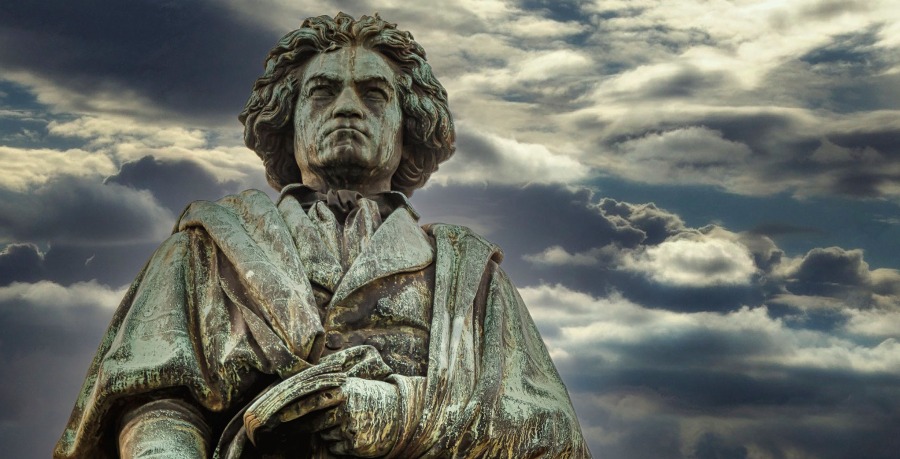Beethoven’s Fifth Symphony has one of classical music’s most well known and iconic openings. But here’s some things that you may not know about one of the world's most famous pieces of music...
1. He was almost entirely deaf when he finished writing it.
Beethoven had already started losing his hearing when he first started working on his Fifth Symphony, and the music is in part about that, signified by the opening motif he described as fate knocking at the door.
2. The first performance was a disaster.
It premiered in Vienna in December 1808 in somewhat hostile conditions. It was freezing, the orchestra only had one rehearsal, and the concert was over 4 hours long. But despite the rocky debut, it was quickly recognized as the masterpiece it truly is and cemented itself in classical music history.
3. Greatness takes time.
It took Beethoven four years to complete his Fifth Symphony, first beginning to note down ideas for this composition in 1804. However, he was working on so many other works at the time that it wasn’t until 1808 that he finally got round to completing it.
4. A symbol of victory in World War Two.
During the Second World War the Allied forces took to using the letter V as a symbol of resistance and the drive to victory. As it so happens, the Morse code of the letter V (short-short-short-long) is like that of the opening to Beethoven’s Fifth Symphony. Before long those famous four opening notes were everywhere including daily BBC radio broadcasts that were sent out the world over, and the motif quickly became a symbol for the Allied forces.
5. Have aliens heard the symphony?
In 1977 Nasa sent out their Voyager 1 and 2 space probes containing a ‘Golden Record’, a collection of sounds, music and images to represent planet Earth in the hopes that they would find intelligent life. And included on that record is the first movement of Beethoven's Fifth symphony. The two Votager probes are still out there today, traveling through the depths of space.
Hear Beethoven in our 2024–25 season
Beethoven's Symphony No.5, Saturday 30 November 2024, Guildford G Live
Beethoven's Violin Concerto, Thursday 20 February 2025, Hull City Hall
Beethoven's Violin Concerto, Sunday 23 February 2025, Aylesbury Waterside Theatre
Beethoven's 'Pastoral' Symphony, Sunday 6 April 2025, The Hawth Crawley
Beethoven's Symphony No.7, Thursday 1 May 2025, London's Cadogan Hall

